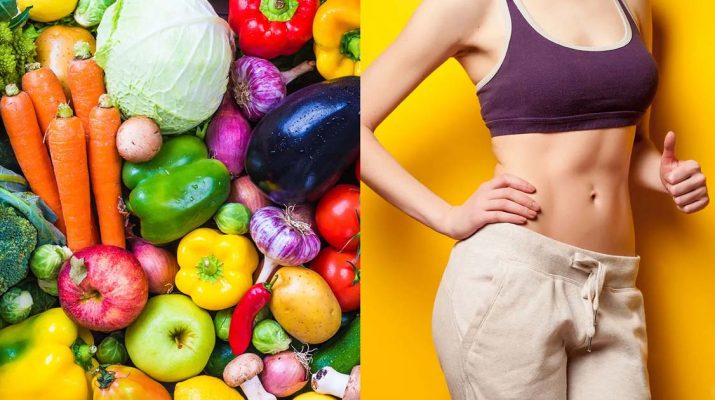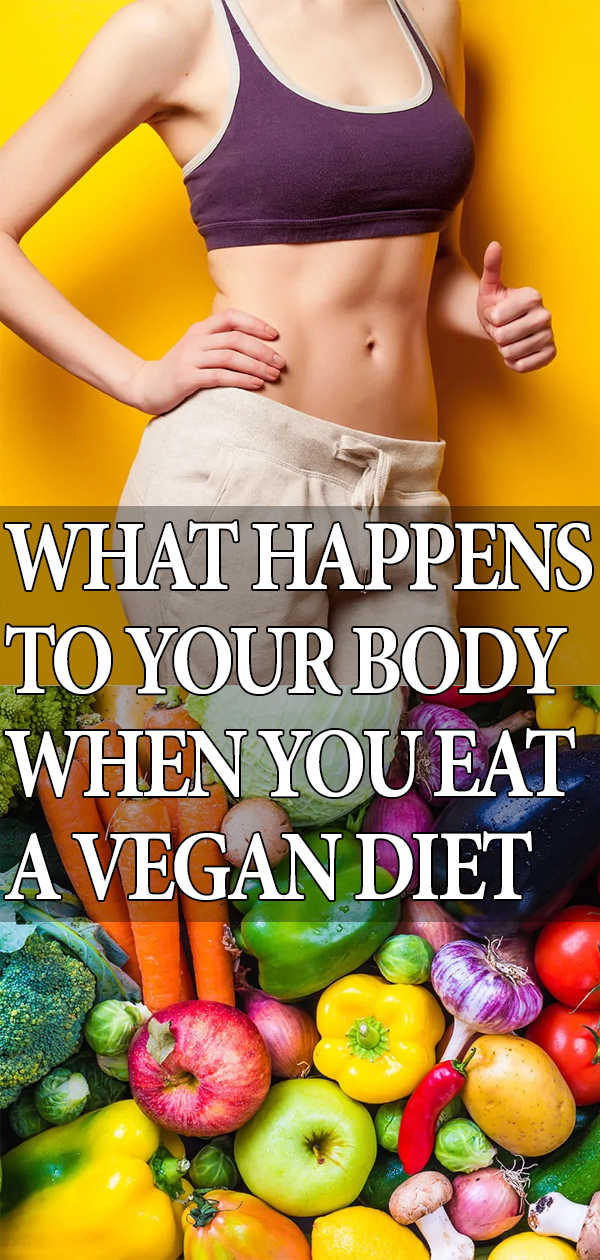Vegan diets are becoming increasingly more popular through time. They involve eating only plant-based foods and, often, using only plant-based materials. The vegan community couldn’t speak more highly of the diet if they tried, so it’s easy to see why so many people are interested.
Many people who are curious about the vegan diet are afraid to dive right in, and with good reason! You’d be cutting out a massive chunk of your usual food, after all, and you may be nervous about how your body would handle it.
Science Explains What Happens To Your Body When You Become A Vegan
1. Your Sense Of Taste Will Change
Your taste buds – along with most other parts of your body – are highly adaptable. This means that they can change and respond to different situations accordingly if given enough time to adapt. In just a few weeks, your taste buds can completely transform, giving you benefits such as:
- A heightened sense of taste
- Lowered sweet cravings
- Lowered junk food cravings
- More enjoyment of food
As such, if you’re worried about keeping your positive thinking when switching to this diet, you can put your mind to rest – it may only take a short while for your taste buds to grow more sensitive. This happens because many animal-based food products have a lot of fat, salt, and sugar in them, numbing our natural sense of taste.
Do note, though, that this can go the opposite way if you’re not careful. Zinc, which you usually find in meat products, especially red meat, helps to keep your taste buds healthy. If you find your taste buds becoming dull and boring after going vegan, take a plant-based zinc supplement after speaking to your doctor.
2. Weight Change
Most vegans report experiencing weight loss of around 10 pounds shortly after making the switch from one diet to another – even in those who aren’t trying to lose weight at all. This is definitely a positive side effect that many people would be interested in. Here’s why this likely happens:
· Reduced Calories
A lot of products like milk, eggs, and even meat aren’t particularly filling but are surprisingly high in calories. When you cut them out of your diet, you have to replace them with options that are often much healthier and lower in calories.
· Feeling Full More Quickly
A lot of vegan foods are rich in a wide variety of different nutrients, especially in fiber. These types of foods are often much more filling, causing vegans to feel satiated more quickly. This decreases their chances of snacking between meals and causes them to cut down on portions.
· Convenience
Vegan options are somewhat limited, and most easy-to-buy snacks that you might see while commuting to work or on errands often are not suitable for you. You’d have to go out of your way to buy something vegan-friendly – and in a lot of places, those options are much more expensive.
· Preparation
As aforementioned, it’s hard to find vegan-friendly food options when you’re out and about, depending on where you live. This limitation can force you to pre-plan all your meals and snacks, often making them yourself to bring along. This diligence allows you to make healthier choices and be more aware of what you put in your food.
Of course, weight loss will only occur if you are health conscious. Eating a lot of vegan junk foods, for example, can have an adverse effect. A label indicating that something is vegan doesn’t automatically mean that it’s healthy!
You should also ensure that you’re getting enough nutrients every day. Don’t neglect protein and other nutrients typically found in meat. If you’re not getting what you need, your body could go into “starvation” mode – or a fat-storage mode – to keep you alive and well.
You may also experience some bloating as your body adjusts to the new diet. Enzymes in your gut meant for digesting animal products will suddenly become idle with nothing to do, while those working on plant products will go into overdrive. The initial bacterial imbalance can cause unwanted bloating which will die down on its own.
3. Your Athletic Performance May Change
When you eat processed animal fats, unhealthy junk foods, and other similar products, your energy stores are quickly depleted. The vegan-friendly options of vegetables, fruits, and even whole-grain carbs can provide your body with healthy minerals, fats, and vitamins that fuel you more efficiently throughout the day.
Unfortunately, although your energy levels can increase, you may see some decline in your athletic performance as a result. This can turn off a lot of people, especially those who are passionate about fitness and muscle-building. But worry not, and keep your positive thinking! All that’s needed in this case is education on how to supplement your new diet to achieve the results you want.
Most athletes or fitness fanatics will need a lot of protein – between 20 and 30 grams in each meal. As they age, the amount of protein they need will also increase. If your muscles don’t get what they need to recover post-workout, they can’t get back in shape in time for your next grind at the gym.
But even if you eat a lot of protein, plant-based types, while just as effective, don’t have the same quick absorption rate of animal proteins. Your muscles will need more time to break down plant proteins to use for muscle synthesis.
A lot of post-workout drinks for vegans can encourage faster recovery, so take a look at some and see if they work for you. You can also carb-load; vegan diets with a lot of carbohydrates can actually help to boost muscle recovery due to all the glycogen you’re storing.
Talk to your doctor about supplements, foods, and ways to keep up your physical ability with this new diet. We promise it’s possible if you put in the effort!
4. You May Become Deficient In Some Nutrients
When you omit huge groups of foods from your daily meal plan, you need some time to figure out how to replace the nutrients that you’re cutting out with them. If you don’t make up for the difference, you can wind up becoming nutrient deficient in certain areas, leading to adverse effects on your health. Here are some nutrients to pay extra attention to:
· Calcium
This nutrient, typically found in dairy products, is crucial for bone and teeth health. You can find it in broccoli, collard greens, black beans, kale, almonds, soybeans, bok choy, and chickpeas.
· Zinc
This mineral is rarely found in plants, and it is vital for immunity. You can find zinc in nuts, leafy greens, peas, whole grain bread, dried beans, and root veggies.
· B12
This vitamin is used in a vast number of bodily functions, and a lack of it can cause an increased risk of anemia. You can find it in soy milk, nutritional yeast, and some cereals.
· Omega-3 Fatty Acids
These components keep your cardiovascular system healthy and are usually found in fish. You can find it in algae, chia seeds, and walnuts.
· Iron
Iron helps to keep you strong and energetic by moving oxygen around the body. You can find it in beans, leafy greens, and some cereals. Try having some with vitamin C sources for better absorption.
· Vitamin D
This vitamin is especially essential if you don’t go outdoors much. You can find it in shiitake mushrooms, soy milk, orange juice, and cereal.
· Riboflavin
This B vitamin is usually abundant in meat, and it is responsible for giving you energy from food. You can find it in almonds, mushroom, and spinach.
Do note that you can take supplements for all these vitamins and minerals. It is best to speak to your doctor first before doing so. Make sure never to exceed the recommended dosage!
5. Your Disease Risk Drops
The best news about going vegan is that you become less at risk for a wide range of diseases. Of course, you will have to maintain that diet for the rest of your life, but many vegans will tell you that it’s more than worth it. Here are some of the diseases that you are less likely to get:
· Digestive Disease
You probably already know that there are a lot of different types of bacteria living in your gut. These types of bacteria and the overall microbiome can influence overall gut health. Studies have indicated that your chosen diet can completely change a gut microbiome altogether.
One digestive disease that can be affected by diet is inflammatory bowel syndrome or IBS. Meat-eaters tend to have an increased amount of fecal bile acid within their digestive system. Their microbiomes also have a higher number of certain bacterial microbes known as B. wadsworthia. This bacteria is closely linked to IBS.
· Heart Disease
If you’re concerned about cardiovascular disease, going vegan may be a positive step in the right direction. Those who eat meat and other animal products are 24% more likely to pass away from ischemic heart disease – and 40% more likely to develop any kind of heart disease.
Many vegan proteins, such as soy, work wonders on reducing harmful cholesterol levels and balancing blood pressure. Vegetarians have also been shown to consume less saturated fat than meat-eaters. Do note that you will still have to avoid saturated fats to replicate these results.
· Bone-Related Disease
Plant-based foods, especially vegetables and fruits, tend to have a lower acid load overall. A Swiss literature review indicated that this lowered load means that bone resorption decreases significantly. This process involves the breaking down of bones, causing minerals from them to enter the bloodstream.
This study may suggest that vegans, who likely consume a lot of fruits and veggies, can benefit from this perk, lowering their risk of bone-related diseases like osteoporosis. With that, more research is necessary for conclusive results.
· Diabetes
Type 2 diabetes is often caused by an unhealthy lifestyle that involves excess sugar and carbohydrate consumption. Although it is entirely possible for vegans to overeat these components, studies indicate that up to 35% of cholesterol is reduced in a plant-based diet – and many theorize that this leads to lower diabetes risk.
· Cancer
According to a collection of different studies, vegans have a lower chance of developing cancer of all kinds. This may be due to healthier food consumption and a smaller total intake of calories, leading to an overall decrease in risk of 15%.
Final Thoughts On What Happens To Your Body When You Become A Vegan
A vegan diet can seem intimidating, but in the long run, it has been scientifically proven to provide positive benefits of all kinds. As long as you make the change in an educated manner, you’ll be able to enjoy the good things from it without suffering the downsides. If you have any doubts, don’t be afraid to speak to your doctor!


